Shiraz Bayjoo’s first solo show with Ed Cross Fine Art – Tu Korek Apart Bezer – considers the implications of social and colonial hierarchies on both communities and environments of the Pacific and Indian Ocean. Curated by Ilaria Conti for Ed Cross Fine Art, the sitespecific exhibition incorporates painting, photography, sculpture and installation and represents a continuation and expansion of the artist’s multidisciplinary and research-based practice.
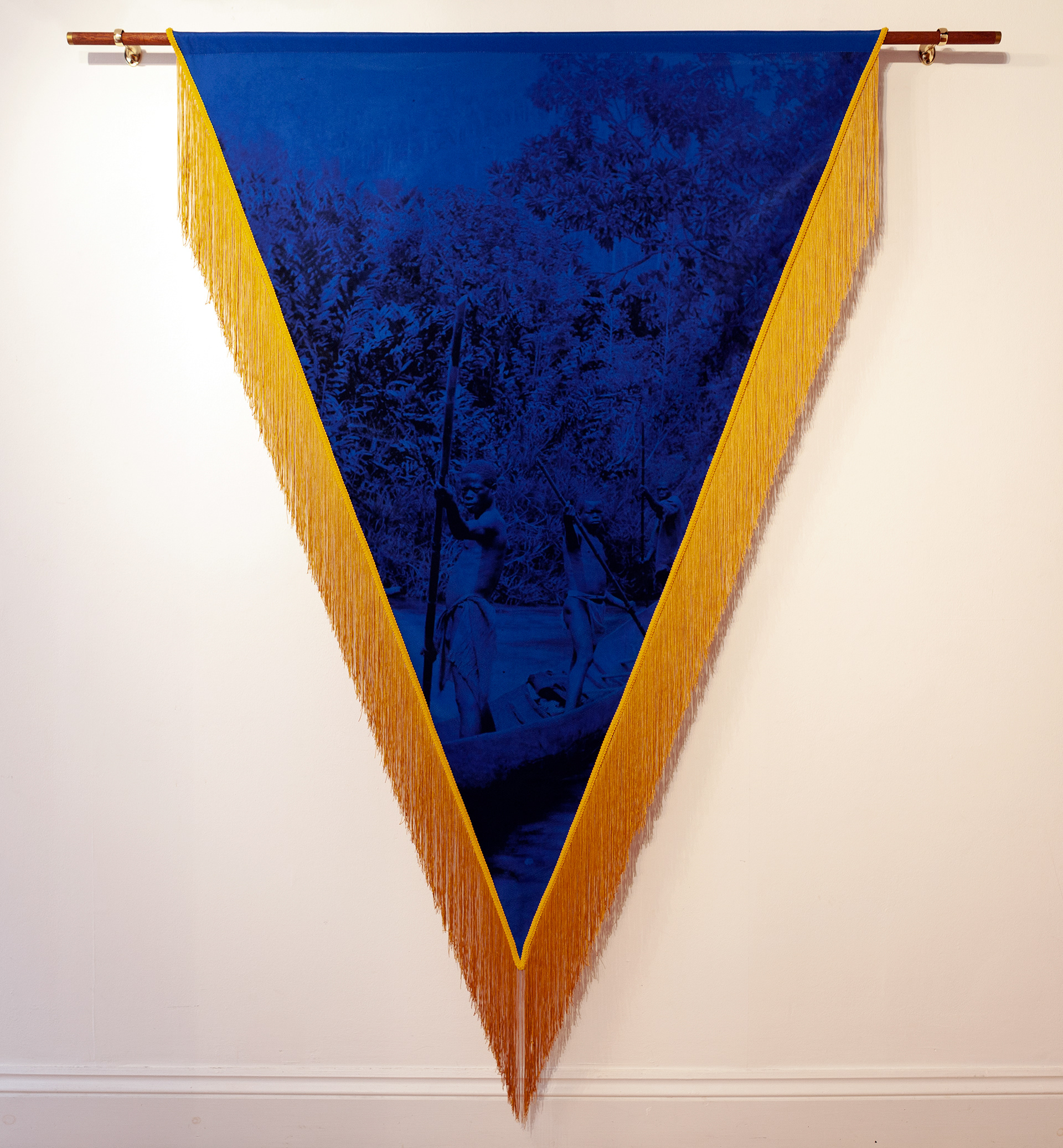
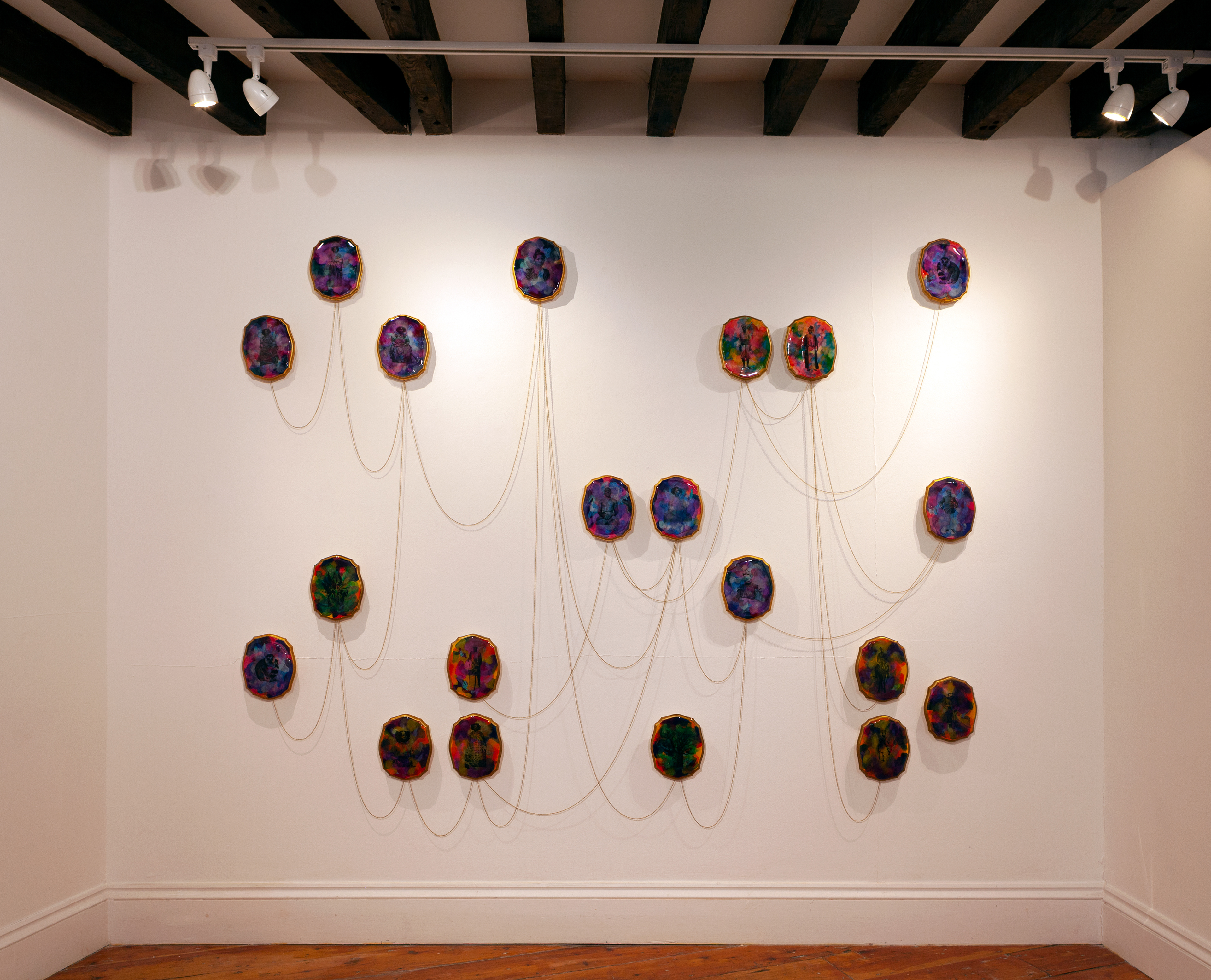

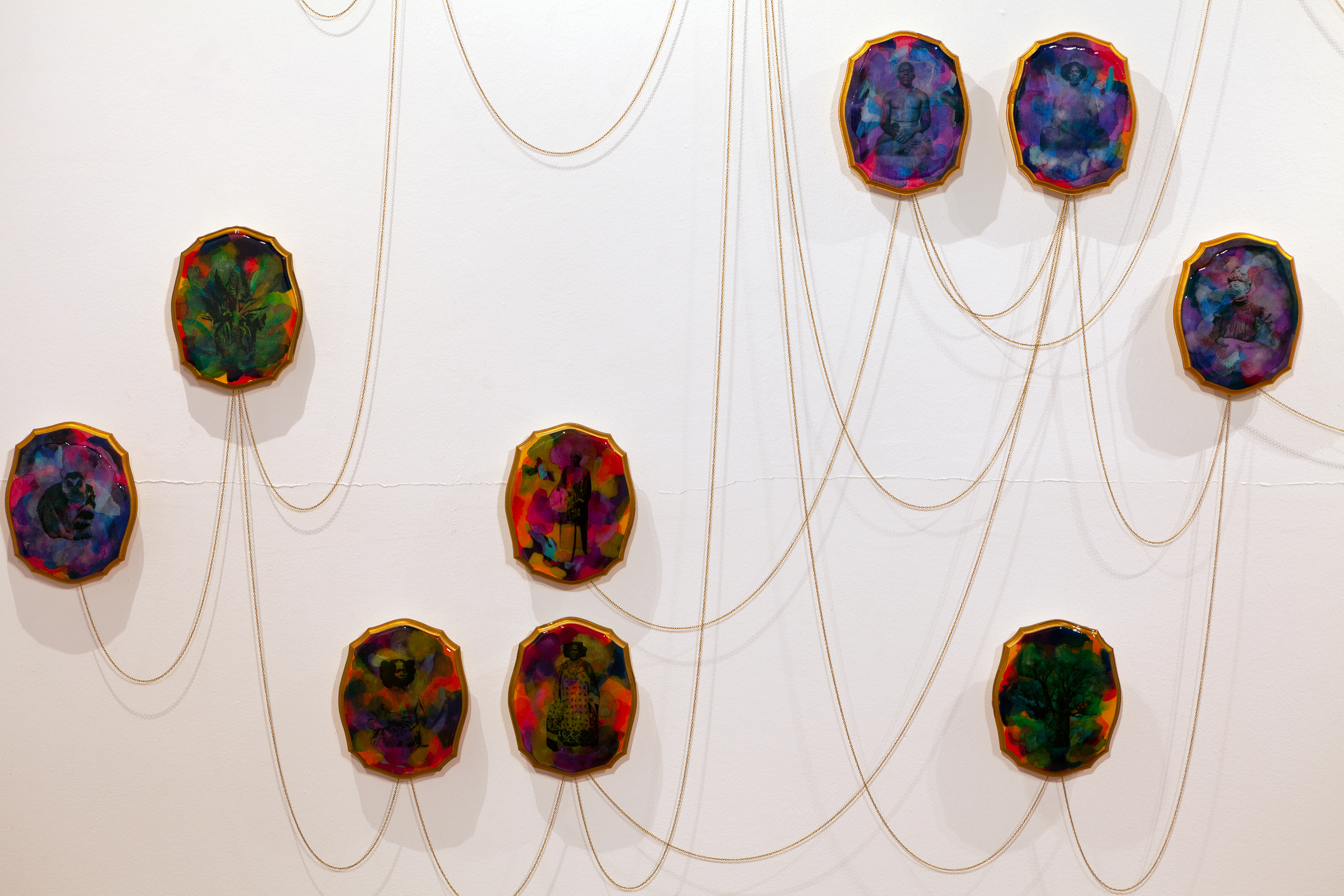
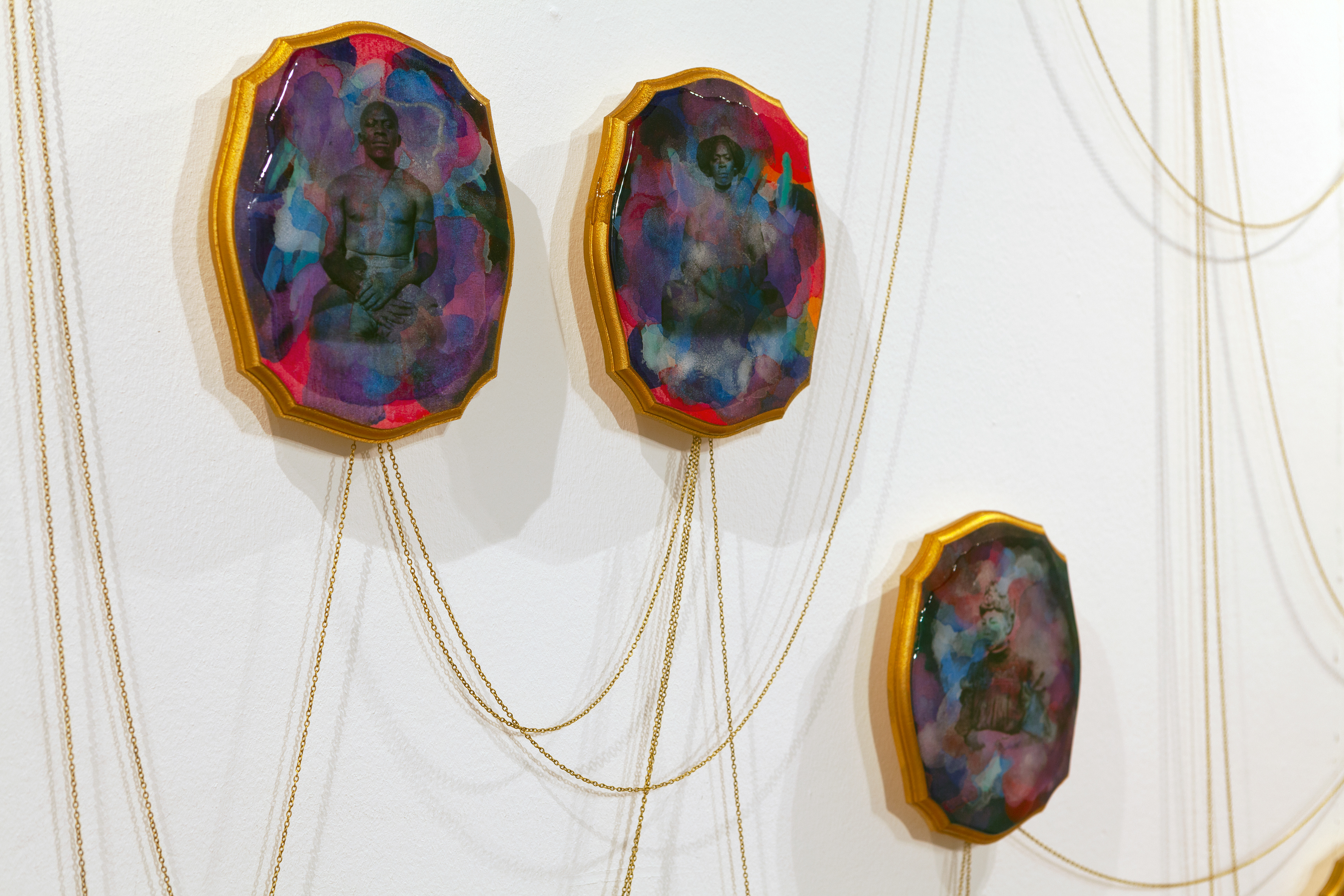
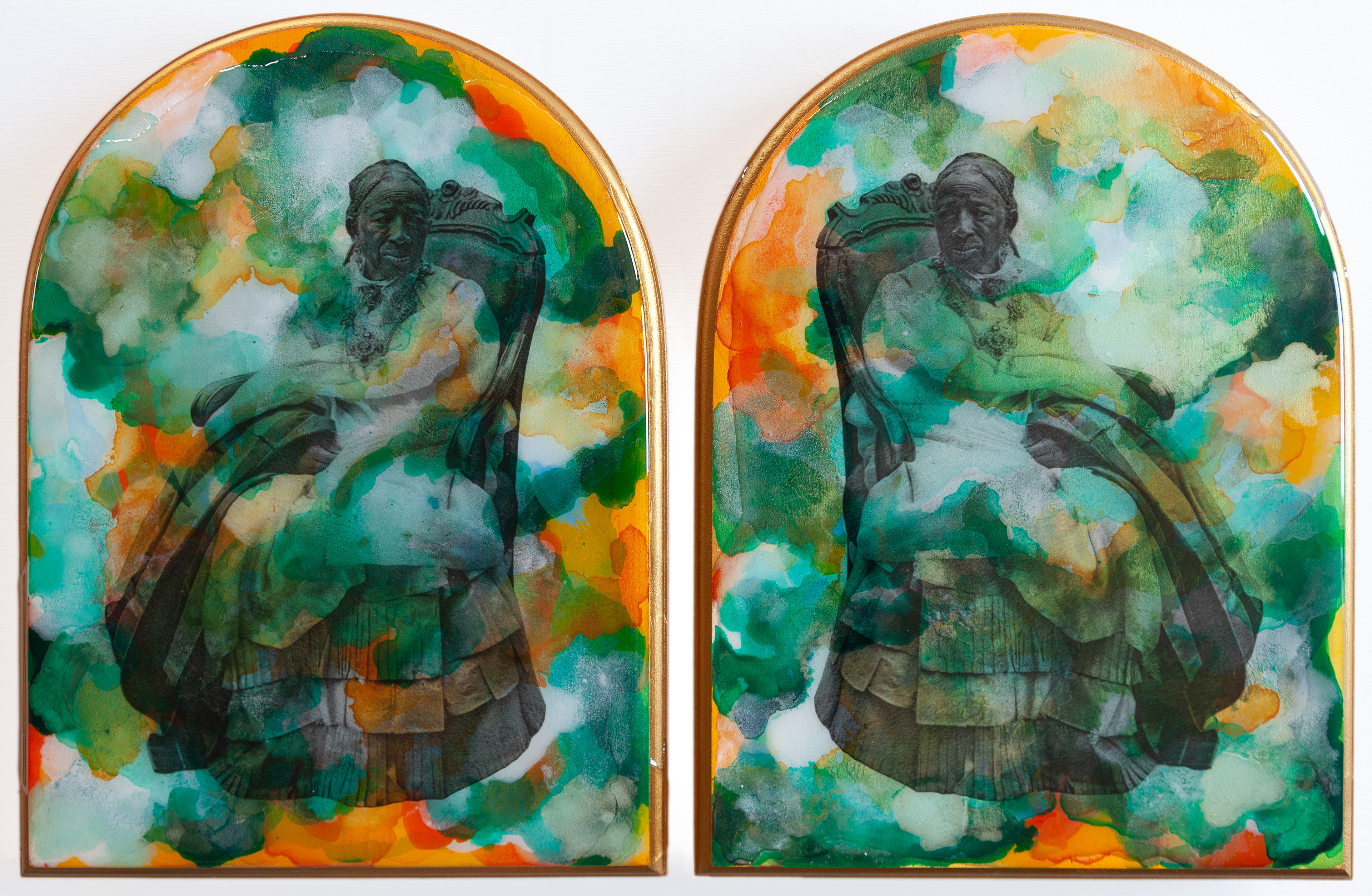
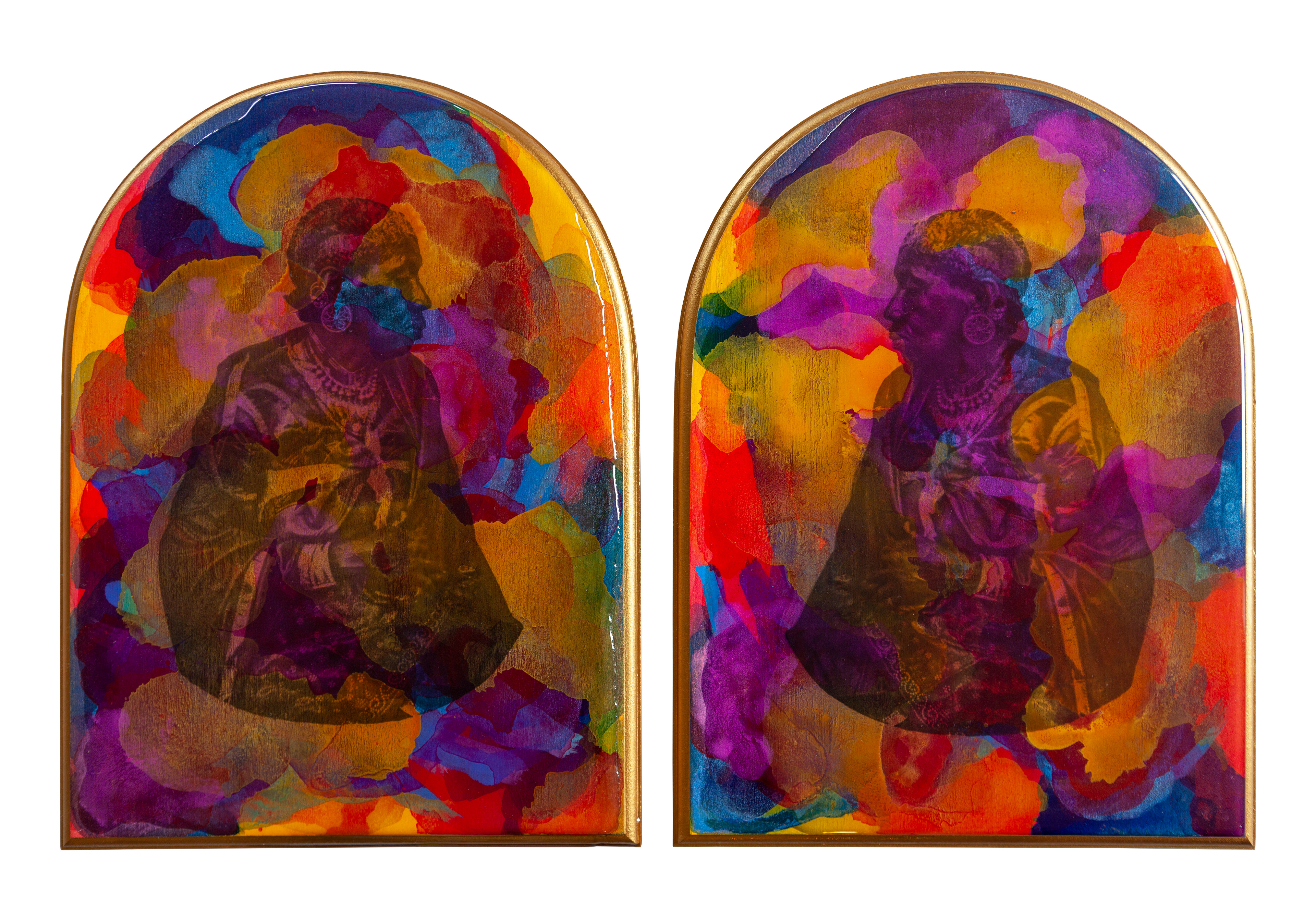
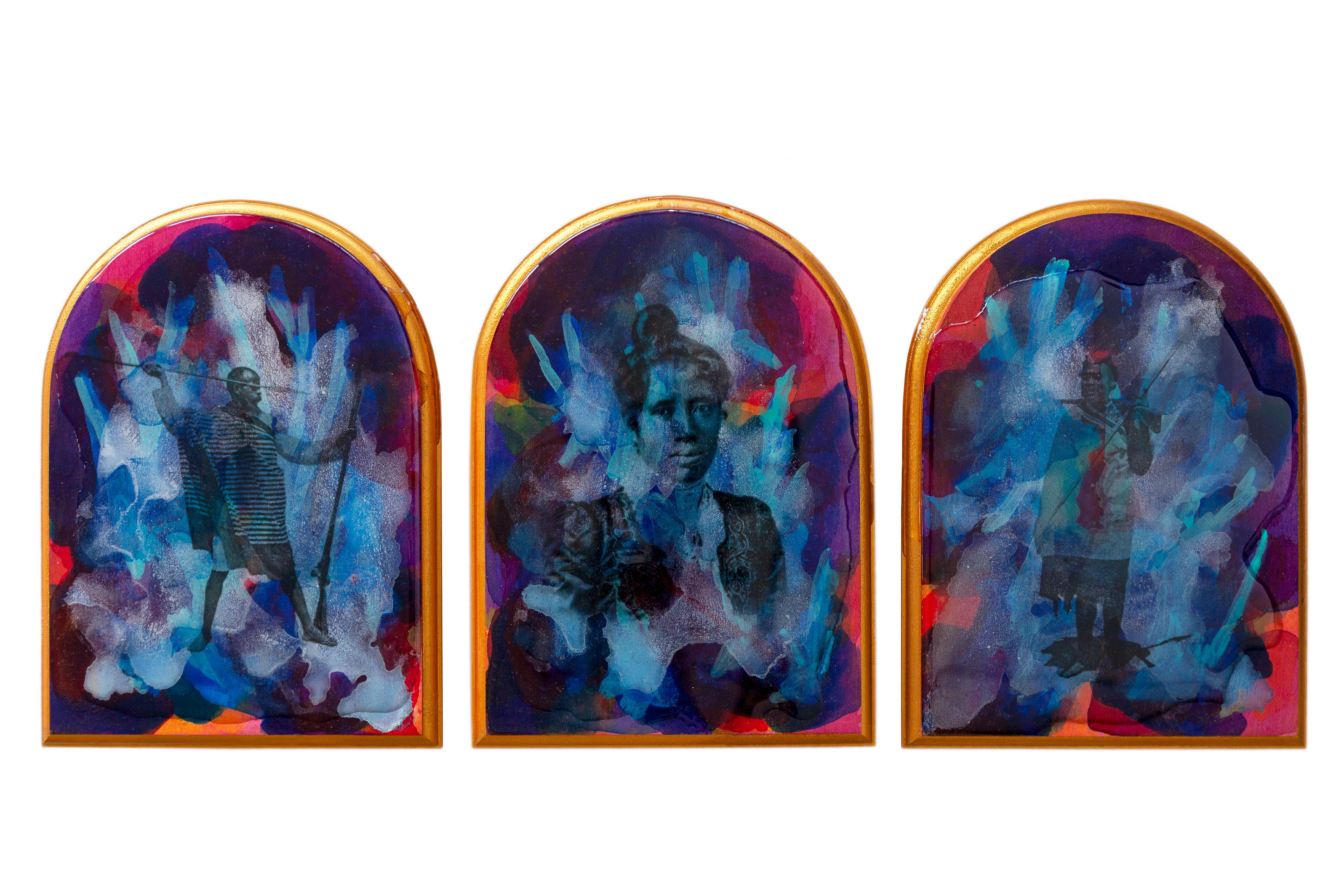
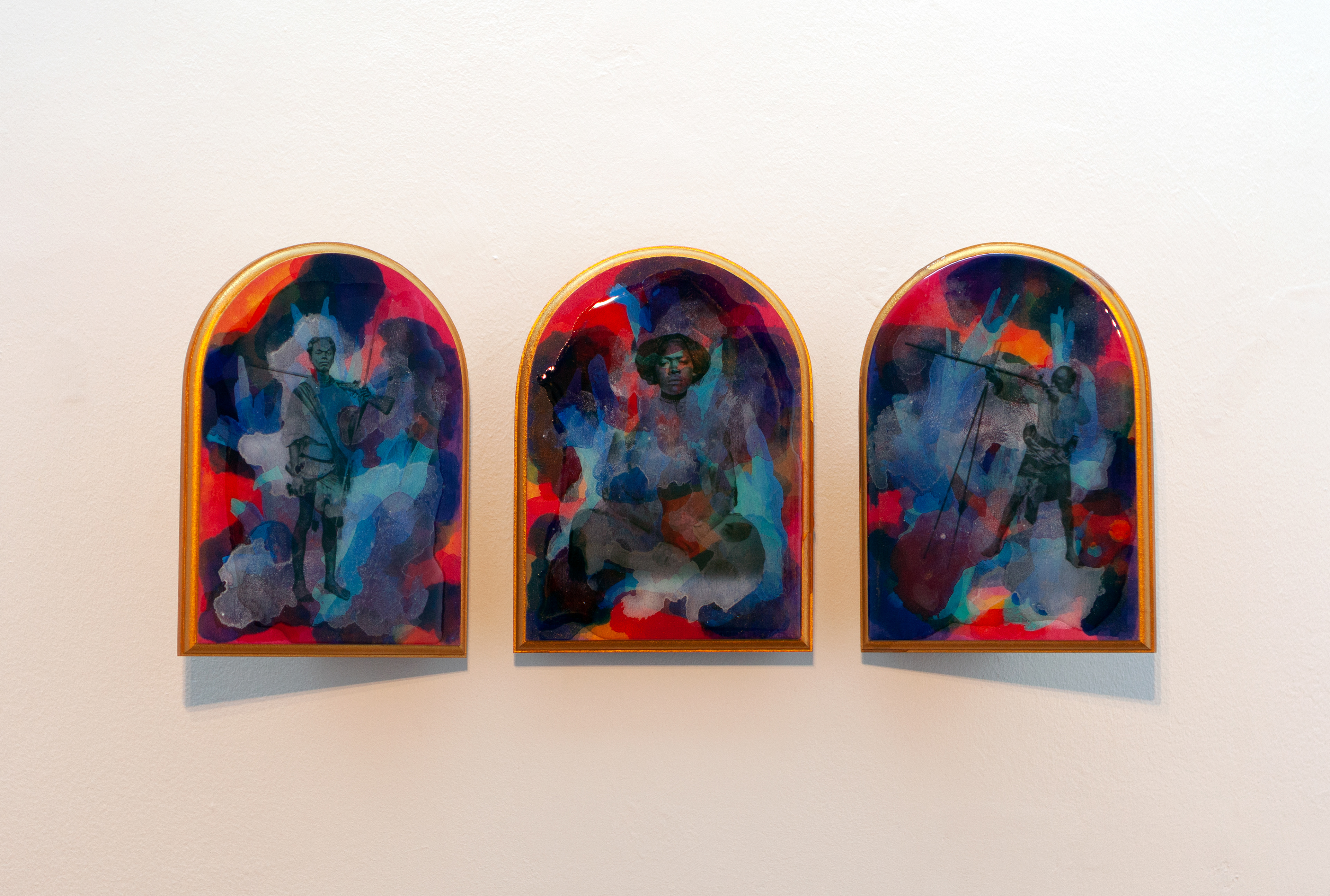
Tu Korek Apart Bezer grapples with the visual language of European status and royalty, (super)imposed on native populations and reconfigured by Bayjoo materially and conceptually. The exhibition’s own archival genealogies stem from Malagasy culture as well as Bayjoo’s own Mauritian heritage; its Creole title, meaning ‘everything’s fine except for the fuckery’, embraces multiplicity while wryly illuminating the exploitation which brought the islands’ linguistic diversity into being. Across both floors, Bayjoo presents a series of new ceramic works: The Coral Continent. Characteristic of his practice in their layering of meaning and material, each object is detailed with a sketch made by Dutch sailors and reinterpreted by printers who made them into lithographs before finding their final incarnation beneath Bayjoo’s fired glaze. Representing the unfamiliar lands, creatures and abundant resources encountered on the sailors’ journeys to and around Africa, the small drawings (touching, troubling) are nestled in earth-coloured clay and moulded into ornate frames nodding to Europe’s contemporaneous opulence. Hung in clusters that belie the intimacy of each work’s individual scale, The Coral Continent runs through the exhibition both spatially and conceptually: here, the natural world is just as much subject to colonialism’s heavy exploitation as human populations. Bayjoo’s experiments with scale and significance extend to En Cours, a series of paintings emerging from his Politique de Races panels (2018) and ranging from jewel-like keepsakes to larger triptychs the size of altarpieces. Recuperating images from colonial archives, En Cours sees Bayjoo working with social presences as well as visual ones; viewers will be accustomed to interpreting a portrait’s subject as powerful, and the artist’s inversion of those aesthetic shorthands redignifies the historically othered subjects of En Cours. Inhabiting the process by which such imagery has been wielded to oppress as well as elevate, En Cours pertains to its own archival origins: here, multilayeredness is as much message as medium. Bayjoo positions the social technology of textiles – from traditional Kanga cloths, which might equally swaddle a new baby and wrap a dead body, to the ostentatious European drapery of flags and military standards – in conversation with the leap in maritime technology that facilitated the first colonial expeditions. San Vizyon, a large triangular swathe of Panama woven fabric trimmed with gold tassels, features three young individuals; their eye contact with the photographer transcends space and material to meet the viewer’s own gaze. The encounter trills with snapshot immediacy, vibrating against the monolith suggested by its royal medium. San Vizyon’s trio are pictured on a canoe, likely made of East African hardwood – perhaps Sapele, from which Bayjoo has constructed the neighbouring Sambo sculpture. For all its maritime inferences – Sambo’s Kangas might be mistaken for sails, its beams for masts – the installation foregrounds sacredness over seafaring. Hanging from Sambo’s Sapele struts, small ceramic objects recall The Coral Continent: a place (gallery, island, canoe) within a place. Shrine-like, Sambo invites the viewer to imagine a hand at work beyond the artist’s – that of a devotee, a mourner or a celebrant – and draws attention to its own balance of artifice and irrepressible reality.
Apart Bez Tu Korek examines what materials themselves are able to testify to; the ideas they might be able to articulate which evade their more mediated subjects. From considering the manipulation of visual languages imposed by colonising cultures, Bayjoo’s work moves to investigate the possibilities of reformulating, setting new terms for its own thinking. Tu Korek Apart Bezer begins with the ‘archive’, but its closing remarks offer new articulations – of meaning, of visuality, of materiality – in the present.